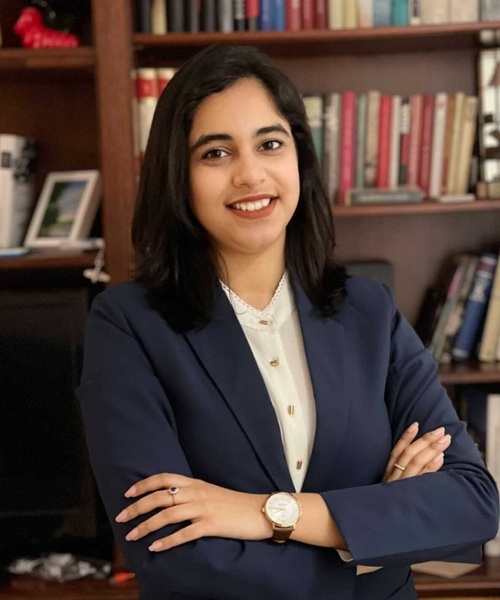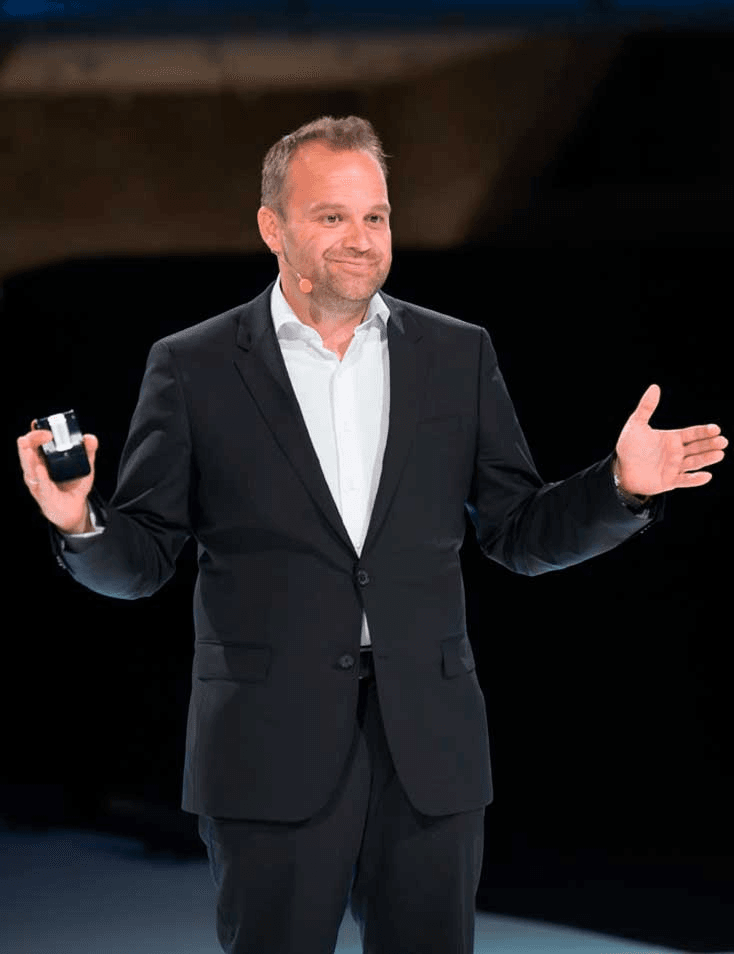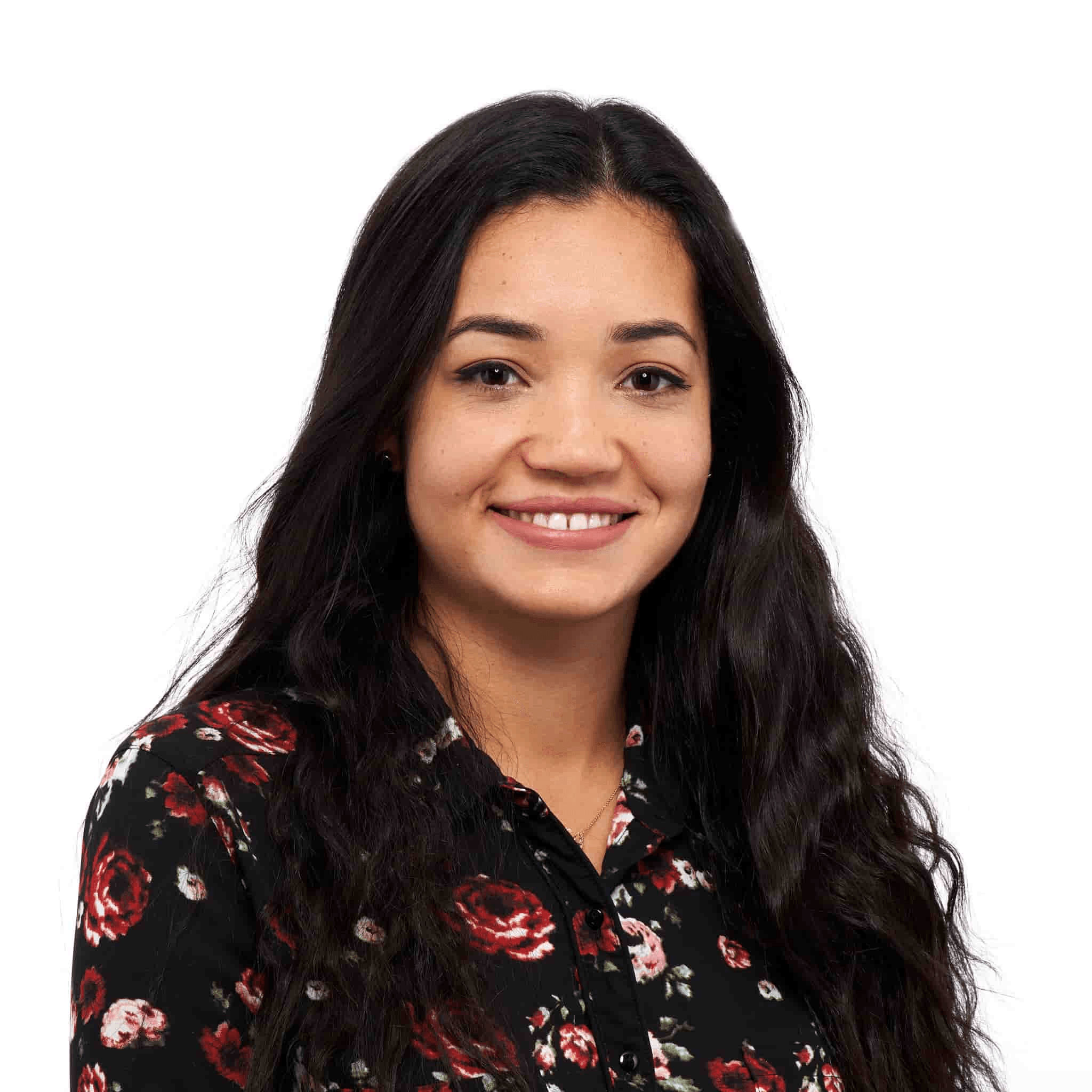
Saania Beg
I grew up in India and would describe myself as a seasoned electrical engineer turned people analytics professional who can bring a unique perspective to the world of human resources. With a deep understanding of data analysis and problem-solving honed over years of designing complex electrical systems, I now apply those same skills to optimize the performance of organizations and their most precious asset—their people. I’m also passionate about reading and traveling—I love to explore in any way I can.

"What makes this program unique are the professors with stellar careers and the classmates who come from various parts of the globe, bringing along their own experience of corporate working."
WHAT IS YOUR ACADEMIC BACKGROUND?
I graduated with a bachelor’s degree in electrical engineering from Aligarh Muslim University in India. After working for about four years in this field, I decided to pivot my career and pursue a new path in human resources. That was when I decided to enroll at IE Business School.
HOW DO YOU SPEND YOUR FREE TIME?
When I’m not at work, I can be found with my nose buried in a book, or exploring a new corner of the globe—sometimes simultaneously! Recently, I have also discovered a deep passion for the art of embroidery. I have seen my mother delve into embroidery during her free time, and now, it is meditative and calming for me as well. For me, embroidery is more than just a hobby: it’s a way to connect with my heritage and carry on a tradition that has been passed down through generations of women in my family.
YOU’VE DEVELOPED AN EXTREMELY VARIED PROFILE OVER THE YEARS. WHAT ENCOURAGED YOU TO MAKE THE SWITCH FROM SYSTEMS ENGINEERING TO HUMAN RESOURCES?
During the final year of my bachelor’s degree, I was offered a role at Siemens, a dream company for every electrical engineering graduate. As elated as I was about taking up this job, I was also determined to pursue a master’s degree after a couple of years of gaining industry experience. However, the work culture and HR policies that Siemens has to offer for each of its employees compelled me to continue in the organization for much longer than I had initially anticipated. As a fresh graduate, I always had the zeal to learn and grow beyond my technical job responsibilities, and the HR policies and activities that encourage continuous learning always helped me satiate my thirst for learning agility.
More important than the ability to contribute to my job role was the fact that I always found enough time to develop myself by learning something more. This was when I realized that one of the major reasons for an employee to thrive in their job is the work environment, which is predominantly the task of human resources. People usually step into HR when they have seen a rather negative and toxic work culture that they wish to change. For me, it was quite the opposite, as my decision to change my field and move into HR came from the excellent work experience that my workplace offered.
WHAT DO YOU FEEL MAKES THE MASTER IN TALENT DEVELOPMENT AND HUMAN RESOURCES UNIQUE?
The Master in Talent Development and Human Resources was a great amalgamation of corporate expertise contributed by students and teachers from various parts of the globe. What makes this program unique are the professors with stellar careers and the classmates who come from various parts of the globe, bringing along their own experience of corporate working.
I believe the adjunct professors at IE Business School passed knowledge to us through the lens of their own experiences, which was amazing because they would help bridge the gap between the academic and professional world. Their connections to industry or government also helped us locate career opportunities and make valuable connections in their network.
I feel that most of the professors who came to our class every week were there to learn from the experience of the students just as much as they were there to impart knowledge to us. This sharing of knowledge in the classroom made the experience most enriching.
WHICH COURSE HAS BEEN YOUR FAVORITE SO FAR, AND WHY?
I decided to pursue a career in people analytics, which reflects how much I loved the Talent Analytics course. The engineer within me really enjoyed all the Digital HR modules throughout the program, but Talent Analytics just became a favorite. It provided me with a comprehensive understanding of how data analysis can be used to improve people management decisions in organizations.
The course helped me develop valuable skills in data visualization and storytelling, which are the more crucial skills of people analytics, rather than the ability to work with data. By the end of the course, I realized that the scope of people analytics could be extended to all the fields of human resources such as performance, well-being, compensation and diversity & inclusion, and that is why I loved the Talent Analytics course the most.
WHAT WAS IT LIKE RELOCATING TO MADRID? WHAT DO YOU LIKE MOST ABOUT THE CITY?
Relocating to Madrid was not the easiest. It was difficult at times to maintain a connection with my family back home while trying to juggle through the intensive workload. Not understanding a word of Spanish did not make the situation any better. But in the end, it was all worth it. I have realized that if you are able to truly find inspiration in your work and remain dedicated, you will thrive sooner or later. By finding certain anchors around myself in my current life, and by being grateful for the life that I am able to live here, I have settled quite well in Madrid.
What I love most about Madrid is the sun. I think the climate of any place highly impacts the temperament of its residents, and I have felt that in Madrid. The weather is amazing almost throughout the year, and the people are friendly and are almost always in a good mood.
HOW DO YOU FEEL YOUR UNIQUE BACKGROUND CAN HELP YOU SUCCEED IN THE TALENT AND HR FIELD GOING FORWARD?
My background as an electrical engineer equips me with a strong foundation in mathematics, statistics, data analysis and problem-solving skills. These skills, along with a deep understanding of HR policies, best practices, and regulations that I have gained during my time in the program, have often helped me to identify and analyze key metrics to make data-driven decisions, which is the core of people analytics.
I often find that my engineer's mindset of trying to optimize processes and finding efficient solutions can be applied to HR practices and strategies, making it more strategic and data-driven rather than based on hunches.
WHAT ADVICE WOULD YOU GIVE TO PROSPECTIVE STUDENTS THINKING OF STUDYING THE MASTER IN TALENT DEVELOPMENT AND HUMAN RESOURCES AT IE BUSINESS SCHOOL?
Based on my personal experience, I would advise them to take advantage of the diversity of backgrounds and experiences of their fellow students. One of the most valuable aspects of all programs at IE Business School is diversity, in terms of both professional and cultural background. Everyone in the classroom has a unique perspective of the challenges and opportunities facing organizations today. Engage and participate in class and group discussions, and it will enrich your learning experience.
LET’S TALK LONG TERM: WHERE DO YOU SEE YOURSELF FIVE OR TEN YEARS FROM NOW?
As someone who has recently pivoted my career into the field of human resources, I see myself continuing to learn, grow and evolve in this field over the next five to ten years. I hope to gain additional experience in people analytics and continue to build my skills in this area. I'm excited about the potential of using data-driven insights for organizations and wish to remain in this field to see how data can have a meaningful impact on the culture and development of the workforce.

